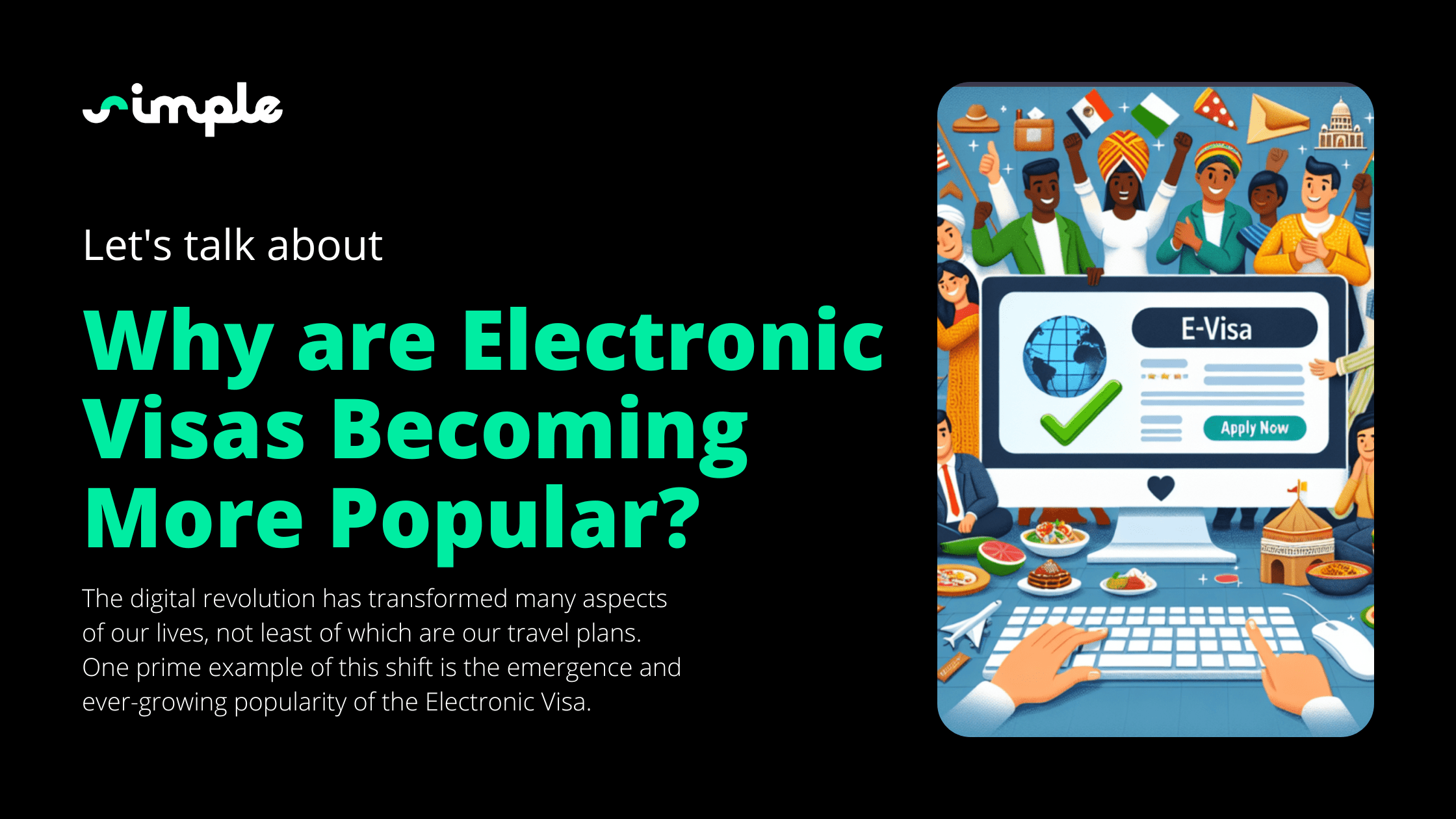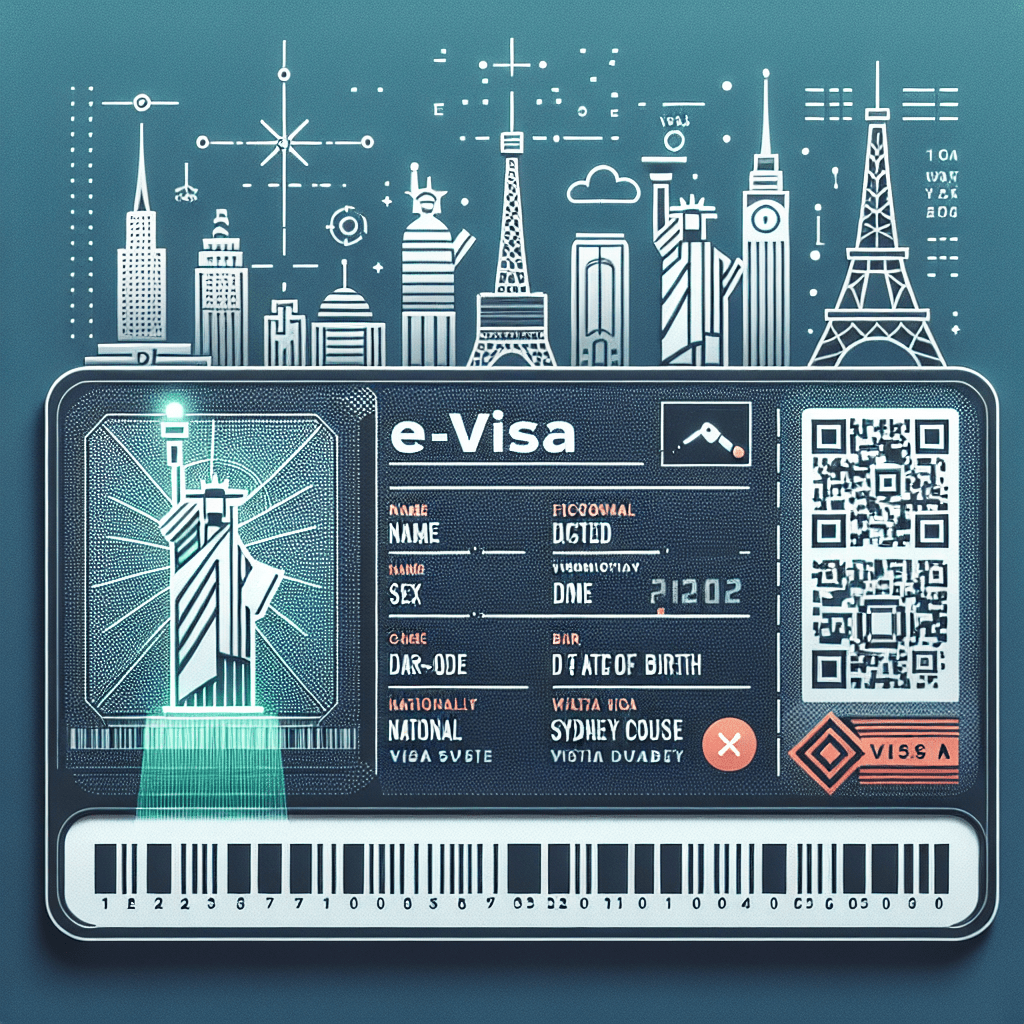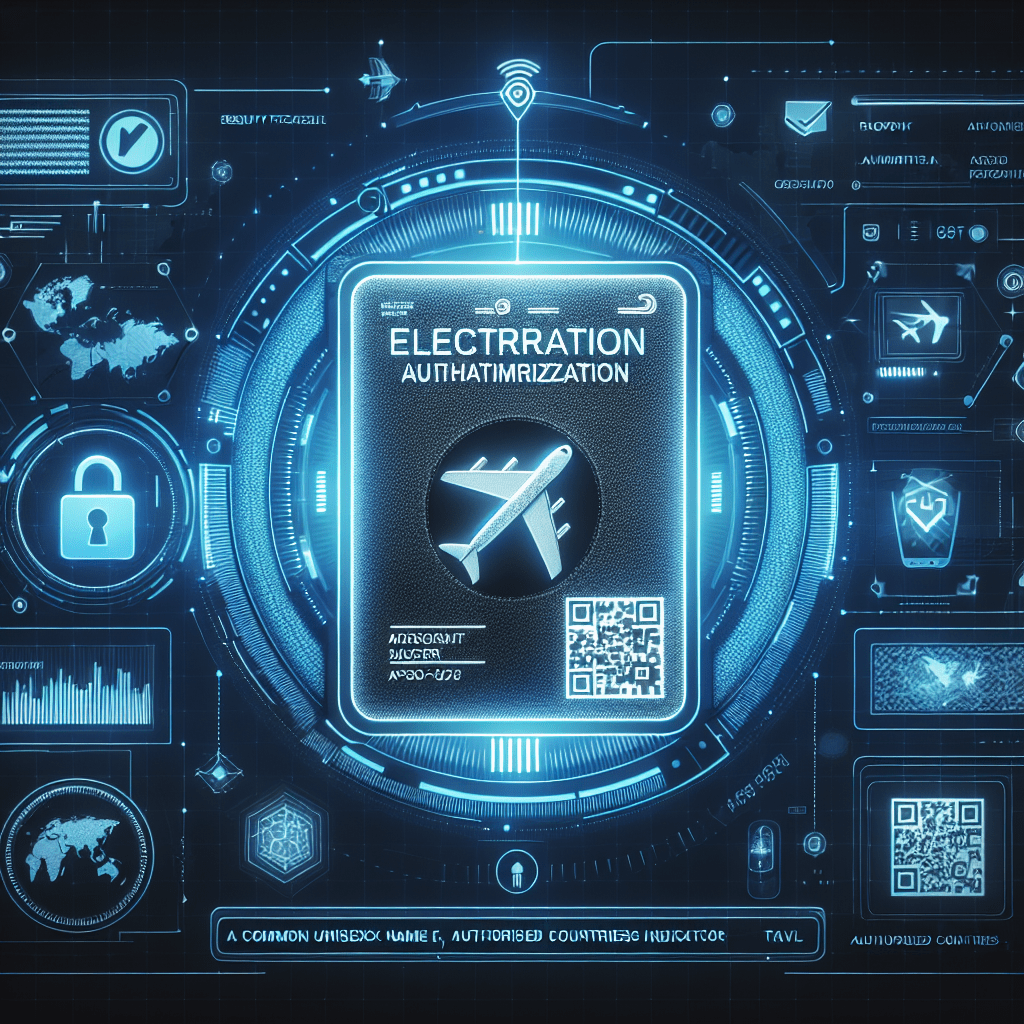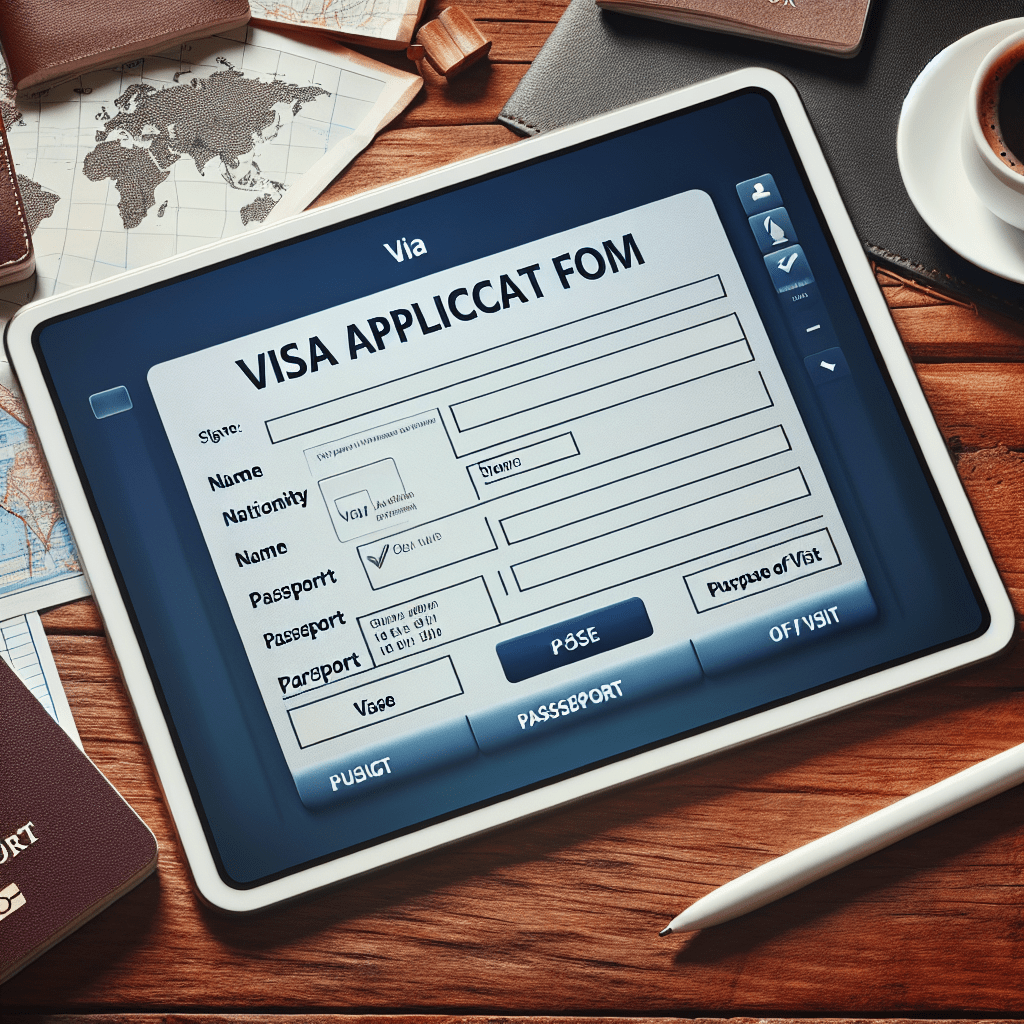Why are Electronic Visa Becoming More Popular?

An Electronic Visa, often referred to as an electronic visa, is a digital version of a traditional visa. It is an official document permitting entry into and travel within a specific country. The application, processing, and approval of an e-Visa are done on an online platform. This digital platform dramatically speeds up the process while maintaining the security and robustness of the traditional paper-document check.
As opposed to making an appointment and trudging down to the embassy or consulate, travelers can now apply for an e-Visa from the comfort of their own homes. The e-Visa is then delivered electronically, via email. Once received, the e-Visa can be printed out or saved onto a mobile device to be shown to immigration officers upon arrival.
Given these distinct advantages, it’s no surprise that more and more countries are turning towards implementing this system, and travelers worldwide are increasingly favoring this option over standard visa processes. In the rest of this article, we’ll delve into the specific reasons why Electronic Visas are rapidly rising in popularity throughout the globe.

Modern Travel Necessities
Convenience in Application
One of the most notable benefits of the Electronic Visa is indeed its convenience. Digital Visa Applications eliminates the cumbersome hours spent filling out paperwork and gathering documents. Travelers can complete the E-Visa Application from the safety of their homes, moving the process entirely online. The Digital Travel Permit, often issued in PDF format, can be saved or printed at will, offering unprecedented flexibility compared to traditional visa procuring methods.
The Online Visa Submission is as straightforward as it gets. It commences with the applicant filling out a simple form online and providing the necessary documentation. Upon successful submission and fee payment, the application is reviewed by appropriate immigration officials. This simple, streamlined process has revolutionized the visa procurement method, contrasting significantly with the old system, which often demanded physical appointments at consulates or embassies.
Time-saving Aspects
The efficiency of Online Visa Processing is another impressive aspect that contributes to its increasing popularity. Unlike applying for a visa via the traditional route, which may take weeks, and sometimes months to process, applications for electronic travel authorization are typically reviewed and approved within a few days.
This speed is particularly beneficial for last-minute travelers who have little lead time before the trip. It eliminates the need for physical visits to embassies or consulates, thus removing a significant stressor and time waster from the equation. With the Online Visa Approval system, travelers can set their travel plans into motion in no time. It brings a certain peace of mind knowing that you no longer have to jump through hoops and cut through red-tape to get your Electronic Immigration Document.
Accessible Anywhere
With the internet bridging geographic gaps, electronic visa can easily be applied for and obtained irrespective of geographic location. Say you’re an American citizen planning a vacation in a remote part of Asia. The traditional method would require you to possibly visit the country’s embassy situated many miles away. However, an Electronic Transit Visa or Digital Tourist Visa eliminates geographical boundaries, enabling you to apply conveniently from wherever you may be located.
Additionally, the electronic visa Registration system being online implies that it is accessible 24/7. This round-the-clock availability encourages travelers to apply for Electronic Visas at their own convenience and at any point in time. Be it middle-of-the-night applications or last-minute Web-based Visa Renewal; this Digital Visa Download system lets you be in control of your travel plans. Taking comfort and convenience to new heights, electronic Visa effectively bring the world to your fingertips.

Enhanced Security Features
Technological Security
With the rise of digital services, security has become an increasingly significant concern. However, the application procedure for the Electronic Visa utilizes cutting-edge technology to prioritize data security, making it a safe alternative to the traditional visa process.
The procedure begins with an Online Visa Submission on a secured platform, where connectivity is encrypted to safeguard personal details. This Digital Visa Application process provides robust data protection, ensuring that sensitive information stays confidential. Furthermore, the technology utilized in E-Visa systems is continually updated to eliminate potential vulnerabilities and stay ahead of cyber threats.
The technological advancements also play a crucial role in reducing visa fraud. Traditional paper visas are susceptible to forgeries, posing potential security threats. However, an Electronic Immigration Document—in its digital format featuring unique QR codes or other advanced identifiers—is challenging to counterfeit, further fortifying the security of visa systems.
Trackable Applications
A significant perk introduced by the Electronic Travel Authorization is the ease of tracking the application status. Online systems offer Automated Status Updates to keep the applicants informed about their visa processing stages. This transparency enhances customer experience and reduces anxiety associated with waiting for visa approval.
Moreover, for government authorities, electronic systems allow the easy tracking and tracing of visa holders. From the moment the Digital Travel Permit is issued until its expiration, authorities have a precise understanding of the visa holder’s movements. This accessibility to precise data assists in ensuring internal security and managing immigration effectively.
Up-to-date Travel Information
The information gathered through the electronic visa Registration system greatly aids governments in managing travel advisories and monitoring border security. As an applicant applies for an Online Entry Authorization, the person’s relevant details are automatically updated in the system, providing real-time data for government use.
This feature allows issuing authorities to keep a tab on incoming travelers and assist them in taking necessary precautions or deploying resources effectively in light of any global or national emergencies. For instance, during a pandemic or a security threat, governments can quickly reference their Electronic Visa systems to understand the volume and source of incoming travel. Thus electronic visas play a vital role in maintaining border and national security in the digital age.

Economic Influences
Government Schemes
Through the implementation of Electronic Travel Authorization systems, numerous governments worldwide leverage technology to boost their economies effectively. Chiefly, e-Visas are playing a significant role in stimulating the tourism sector, one of the most vital sources of foreign income for many countries.
Opting for e-Visas, countries can market themselves to a wider audience by emphasizing the ease of their Online Visa Processing. For example, India’s introduction of the E-Visa for tourists has led to a steady increase in international tourists since its inception. Similarly, Australia’s Electronic Transit Visa system demonstrates the country’s forward-thinking immigration strategy that warmly welcomes international visitants—boosting not only tourism but also bringing in business opportunities.
These are just a few instances showcasing how digitization in the immigration sector helps countries stay competitive in the global tourism market while enhancing their appeal to international visitors.
Affordable Costs
The other significant advantage of adopting the Digital Visa Application system is that it often results in cost savings for both applicants and governments. The convenience of applying for an Electronic Immigration Document from the comfort of home eliminates travel expenses. It also reduces the indirect costs tied to taking time off work to attend visa application appointments.
Moreover, governments also save considerably by utilizing online platforms. The cost of processing an E-Visa Application is typically lower than that of a paper-based visa due to less manpower required. This cost-effectiveness is often transferred to the visa charges, making Electronic Travel Authorizations more affordable than traditional visas. The combination of convenience, speed, and affordability enhances the appeal of e-Visas, intensifying their popularity.
Benefits to Host Country
The widespread acceptance of Online Entry Authorization systems globally offers substantial economic benefits for the host countries. As more tourists are encouraged to visit due to eased visa processes, local industries flourish, leading to job creation and strengthening the national economy.
A booming tourism sector results in increased spending in local businesses, hotels, restaurants, and tourist attractions. The ripple effect of this spending is felt throughout the local economy, boosting employment and significantly contributing to the Gross Domestic Product (GDP). Indeed, the Digital Tourist Visa trend is likely to be a large economic driver in the coming years.
Moreover, looking at the future, as the use of Electronic Visas expands, it will keep triggering technological innovations and upgrades, advancing the tech industry in host countries. All in all, the shift toward the electronic visa system helps set countries on the path of digital transformation, bringing about numerous economic benefits.

Embracing the Future of Travel with electronic visa
The shift towards electronic Visa marks a significant epoch in travel and immigration history. From the perspective of an applicant, e-Visas offer an efficient, convenient, and secure method for obtaining travel authorizations. It eliminates the need for time-consuming procedures while ushering in a new era of digital convenience. With benefits such as ease of application, reduced costs, expedited approval time, and the option to apply for visas from any corner of the world, electronic visa represent a revolutionary step in modernizing the oft-tedious process of visa application and approval.
For governments, e-Visas present an opportunity to streamline immigration systems, improve security, and foster economic growth. The benefits are multi-fold – from tapping into the tourism market, invigorating the economy, enhancing national security, to efficiently managing immigration in today’s digital world.
With the application data being electronic, e-Visas enable governments to make data-driven decisions, optimize immigration policies, and improve border security measures. Furthermore, the cost savings and boosted efficiency translate into economic benefits, directly impacting the country’s economic outlook.
E-Visas efficiently bridge the gap between the need for a secure, streamlined visa process and the prospective economic benefits to nations worldwide. They are a testament to how the digitization wave is impacting even traditionally paper-based systems – redefining them to suit the technological advancements of the 21st century. The increasing popularity of Electronic Visas stands as a testament to their success and paints a promising future for digital transformation in the world of travel. With their multitude of benefits, it’s clear the e-Visa trend isn’t a passing phase; rather, it’s the future of global travel.